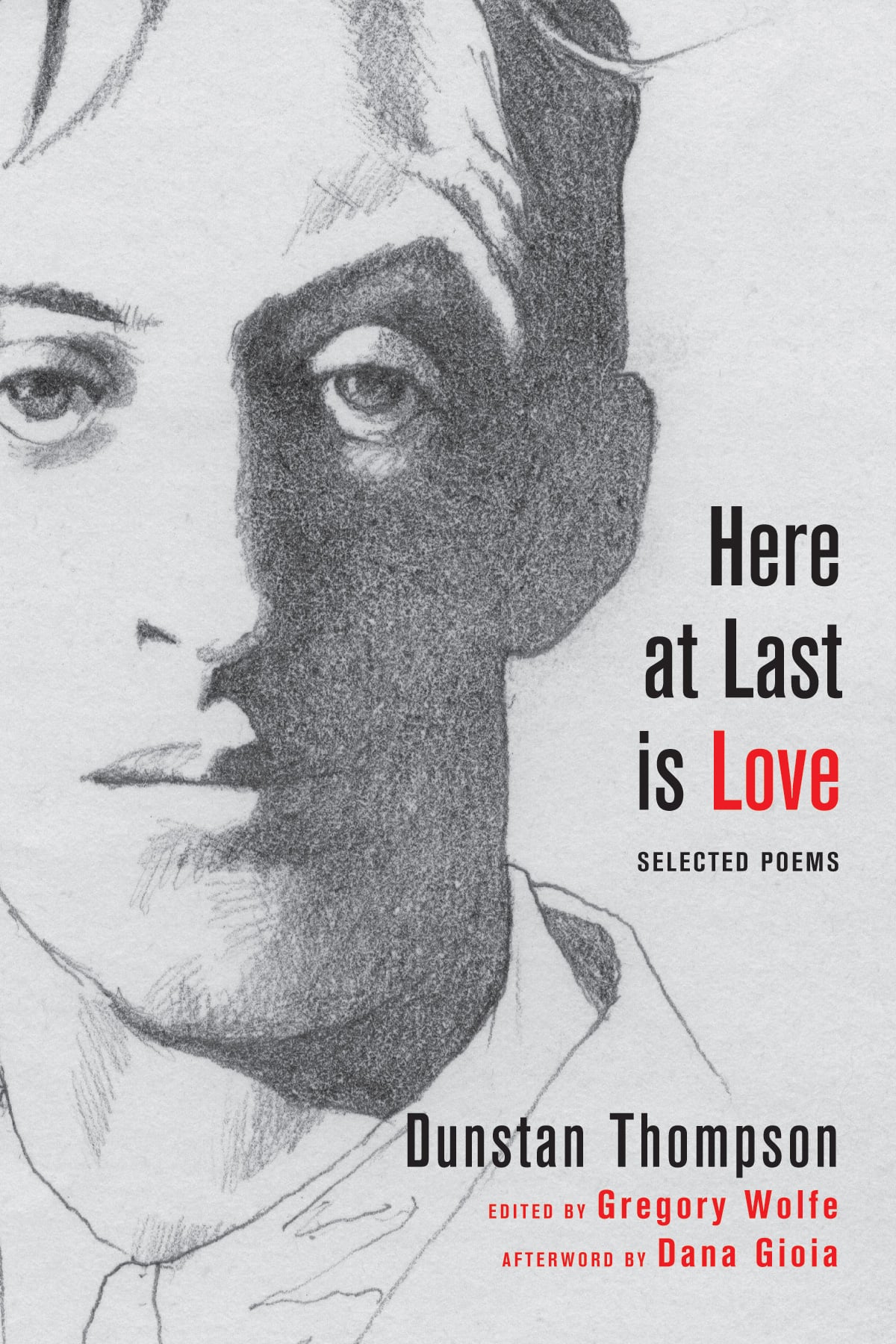A Dana Gioia le debo este descubrimiento, como tantos otros. No se pierdan su ensayo biográfico-literario sobre Thompson. Gioia escribe sobre los "dos" Dunstan Thompson de los que algunos críticos hablan, el gay y el Católico, antes y después de su conversión, como si fueran dos poetas distintos. Gioia resalta que la diferencia no es teólogica, sino la de una madurez emocional.
Lo que importa es su poesía, pero como poco se conocen historias como esta, pongo aquí un fragmento, casi a modo de clickbait:
Thompson had abandoned Catholicism at Harvard, though he had never entirely renounced the faith. In 1952 he told his lover (who had been raised an Anglican) that he wanted to practice the Catholic faith again. Trower was initially taken by surprise, but six months later he followed Thompson into the Church. The two men also made the bold move to ask for ecclesiastical permission to live together as a celibate couple, which, mirabile dictu, was granted. (Their spiritual advisor wisely felt that they would live their faith more successfully together than apart.) (...)
A common assumption about Thompson’s career is that he changed from a glorious gay pagan celebrating the world, the flesh, and the devil to a pious Catholic contemplating eternity, the soul, and salvation. Such a neat dichotomy makes it easy to generalize about the poetry. The problem is that a careful study of the work itself does not support the theory that Thompson changed (in Edward Field’s pithy but inaccurate formula) “from brilliant bad boy to repentant sinner.” The poems tell a more complicated and interesting story. They demonstrate both continuities and dislocations in his work. They also suggest that Thompson’s main transformation was not theological but emotional. (...)
It is a great mistake to divide Thompson’s career into Catholic and non-Catholic periods. Roman Catholicism haunts all of his writing, even the novel and travelogue. The early poetry is as deeply and explicitly theological as the later work. What differs mostly is the speaker’s perceived relationship toward grace and redemption. Edward Field’s formula is exactly backward: only in Thompson’s early work does the persona of the guilt-ridden sinner appear. This torturously divided soul, vacillating between carnal desire and spiritual despair, serves as the protagonist of the early work. If the young Thompson was indeed a “brilliant bad boy,” he was also the very poster child of Catholic guilt. For him, sexual inebriation inevitably led to a theological hangover. By contrast, the calm and grateful persona of the later work is unconcerned with guilt or repentance.
 |
| (via) |
DEDICATION
Your friend? I am. In every way I can
Be—failing often, yet succeeding too.
Not as an angel, simply as a man,
I make a present of myself to you.
What do you get? The shyness from my youth.
Also the gaiety bestowed at birth.
Devotion to you and, as keen, to truth,
My only value as God gives me worth.
Would there were more, much more, to make me shine
Now as in Heaven I hope to do. But still
You have my poems, and they are yours, though mine.
There is my meaning. There my gift and skill
Together worked the best that I could do.
And all, most gratefully, is given to you.


No hay comentarios:
Publicar un comentario